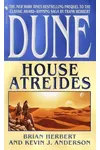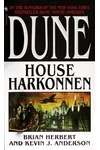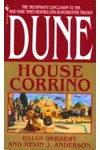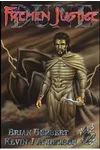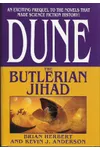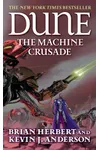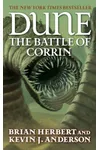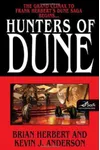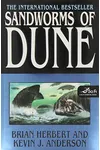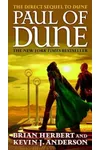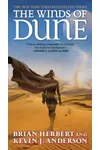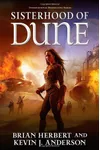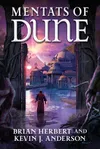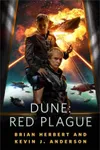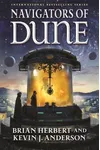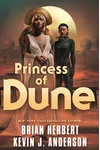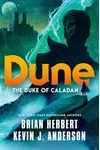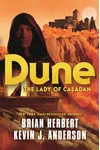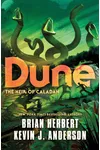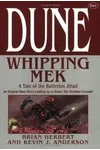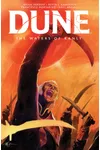Picture a storyteller weaving epic tales of distant planets and cosmic destinies—meet Brian Herbert! Born in 1947, this American science fiction author has carried the torch of his father, Frank Herbert, the legendary creator of Dune. But Brian is no mere shadow; he’s a prolific writer who’s expanded the Dune universe while crafting original sagas, earning accolades and a devoted fanbase.
Growing up in a household buzzing with creativity, Brian was destined to tell stories. His journey from a curious kid in Seattle to a New York Times bestselling author is a tale of passion, perseverance, and a love for science fiction’s boundless possibilities. Let’s dive into the life and legacy of Brian Herbert!
The Making of Brian Herbert
Brian Patrick Herbert was born on June 29, 1947, in Seattle, Washington, the eldest son of Frank Herbert, whose Dune redefined science fiction. Surrounded by books and his father’s imaginative discussions, Brian developed a knack for storytelling early on. He kicked off his career with Classic Comebacks in 1981, but it was his deep dive into the Dune universe that cemented his name. Collaborating with his father on Man of Two Worlds gave him a taste of co-authorship, setting the stage for his future work.
Before fully embracing writing, Brian honed his craft, drawing inspiration from sci-fi giants like Douglas Adams and his father’s ecological and philosophical themes. His ability to blend humor, satire, and grand narratives shaped his unique voice, making him a standout in a genre often dominated by his father’s legacy.
Brian Herbert’s Unforgettable Stories
Brian’s bibliography is a treasure trove of imagination. His most famous contributions are the Dune prequels and sequels co-authored with Kevin J. Anderson, including Dune: House Atreides (1999), The Butlerian Jihad (2002), and Hunters of Dune (2006). These works, based on Frank Herbert’s notes, explore the origins of Arrakis and its iconic houses, delighting fans with new layers to the saga. Dune: House Atreides, a New York Times bestseller, dives into the early lives of Leto Atreides and Baron Harkonnen, blending political intrigue with cosmic stakes.
Beyond Dune, Brian’s original works shine. Sidney’s Comet (1983) is a witty satire about a garbage comet threatening Earth, showcasing his playful side. The Timeweb trilogy (2006–2008) weaves a galaxy-spanning epic of environmental themes and alien webs, proving his knack for intricate world-building. Sudanna, Sudanna (1985) offers a surreal take on alien bureaucracy, balancing humor and depth. His style—rich with ecological, philosophical, and satirical threads—invites readers to ponder humanity’s place in the cosmos.
Brian’s collaboration with Anderson extends to the Hellhole trilogy and graphic novel adaptations, like Dune: House Harkonnen. He’s also penned short stories and comics, adding breadth to his portfolio. His 2003 biography, Dreamer of Dune, a Hugo Award finalist, offers a heartfelt look at his father’s life, revealing Brian’s skill in nonfiction.
Why Brian Herbert Matters
Brian Herbert’s impact lies in his ability to honor and expand a sci-fi cornerstone while carving his own niche. His Dune collaborations have kept Frank Herbert’s universe alive, introducing new generations to Arrakis through books, films, and upcoming TV series like Dune: The Sisterhood, where Brian serves as an executive producer. His original works, infused with ecological and humanistic themes, resonate in an era grappling with climate change and technological ethics.
Despite some fans critiquing his Dune sequels for lacking his father’s depth, Brian’s contributions have broadened the franchise’s reach, making it a cultural juggernaut. His versatility—spanning satire, epic sci-fi, and biography—marks him as a dynamic voice in speculative fiction, inspiring writers to blend legacy with innovation.
About Brian Herbert
- Born: June 29, 1947, Seattle, Washington
- Key Works: Dune: House Atreides, Sidney’s Comet, Timeweb, Dreamer of Dune
- Awards: New York Times Notable Book Award, Hugo Award finalist for Dreamer of Dune
- Fun Fact: Brian and his wife, Jan, have traveled to all seven continents, gathering inspiration for his stories.
Snag Dune: House Atreides or Timeweb and dive into Brian Herbert’s thrilling sci-fi worlds! Whether you’re a Dune devotee or a newcomer, his stories promise adventure, wit, and wonder.
